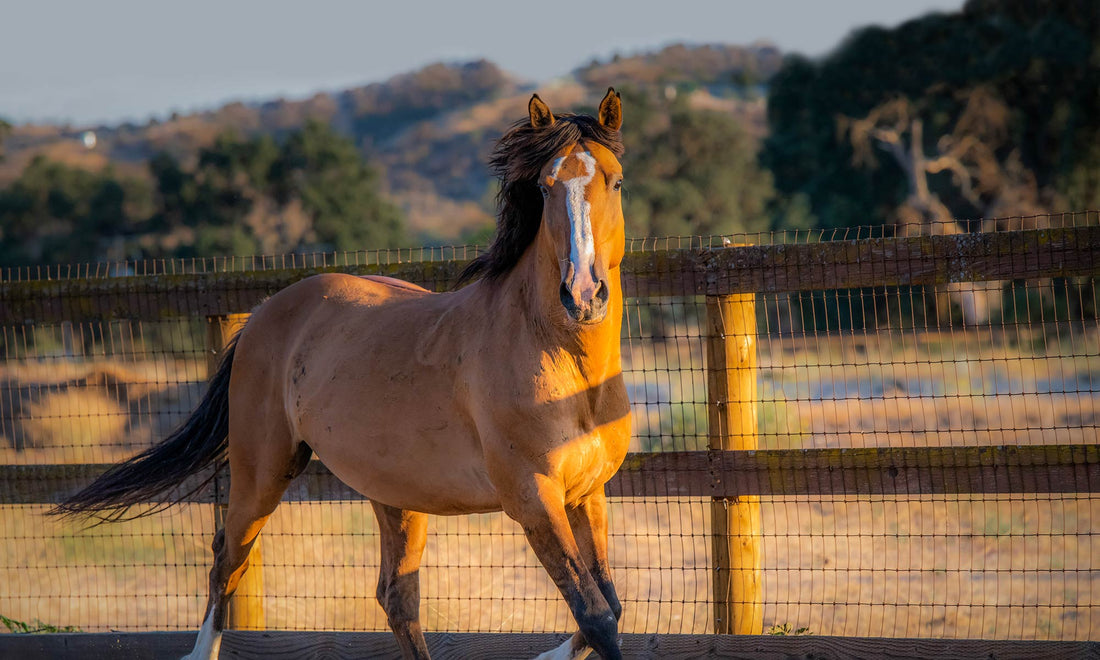
How Tall is a Mustang Horse? Understanding Their Height and More
Share
When considering adopting a horse, many potential owners often inquire, 'how tall is a mustang horse?' This question isn't just about the measurements; it encompasses a deeper understanding of the breed's characteristics, care requirements, and their role in the equestrian world. In this article, we will explore not only the typical height of a mustang horse but also factors that can influence their stature, health considerations for potential owners, and tips for properly caring for these magnificent creatures.

What is a Mustang Horse?
The mustang is not merely a breed; it represents a vital part of American history. Descendants of domesticated horses brought to North America by Spanish explorers, these horses adapted to various terrains and climates, resulting in a hardy and resilient breed. Understanding how their unique background influences their size is essential for any prospective owner.
Average Height of a Mustang Horse
On average, most mustangs stand between 14 to 15.3 hands tall (approximately 56 to 62 inches at the withers). The variations in height can be attributed to several factors:
- Genetics: Like any breed, a mustang's height can vary depending on its lineage.
- Diet: Proper nutrition during the horses formative years can influence its growth potential.
- Environment: A horse's living conditions and lifestyle can also play a role in determining height.

Health Considerations for Mustang Horses
Owning a mustang does come with specific health considerations that mindful pet owners should keep in mind. Here are some crucial points:
- Hoof Care: Mustangs tend to have tough hooves due to their wild heritage, but regular trimming and care are vital for maintaining their health.
- Diet Requirements: Understanding what horses eat is essential, as mustangs often graze on tougher grasses.
- Vaccination: Like all horses, mustangs require vaccinations to prevent disease. Consult a veterinarian for the necessary protocols.

Training and Handling Mustang Horses
Training mustang horses can be a rewarding experience, although they often come with added challenges. Here are some effective approaches:
- Gentle Approach: Building trust is crucial, as mustangs can be more flighty and reactive than other breeds.
- Consistency: Like most horses, they thrive on clear expectations and routines. Consistent training leads to better responses.
- Focus on Socialization: Regular interaction with humans and other horses can help ease anxiety and build confidence.

Final Thoughts on Mustang Height
When asking, 'how tall is a mustang horse?' the answer is multifaceted, with an average range influenced by numerous factors. For health-conscious pet owners, understanding these various aspects of mustangs can lead to better care practices and more informed decisions. From the commitment to proper care and training to recognizing possibly varying heights, every consideration builds toward a rewarding experience with these extraordinary horses.
FAQs about Mustang Horses
1. What do mustangs typically weigh?
Mustangs usually weigh between 800 to 1,000 pounds, depending on their height and build.
2. How long can mustangs live?
On average, mustangs can live between 20 to 30 years with proper care.
3. Are mustangs easy to train?
Training mustangs can be challenging compared to trained horses, as they often have a wild and independent spirit that requires a patient and informed approach.
As an Amazon Associate, I earn from qualifying purchases.
For more information, visit ASPCA Horse Care.
